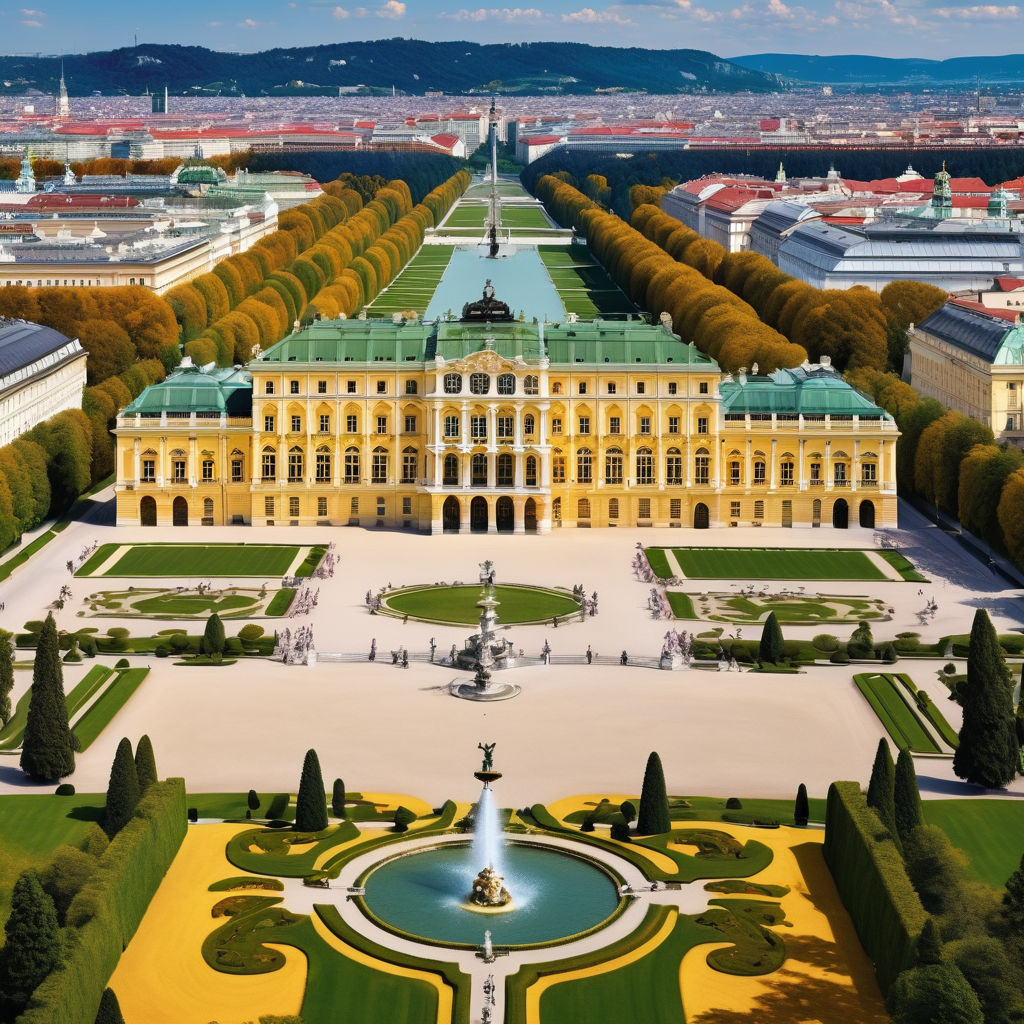Discover Austria: A Cultural Crossroads in the Heart of Europe
Exploring Austria’s Rich Cultural Heritage, Social Dynamics, and Cross-cultural Interactions

Introduction to Austria
Austria, officially known as the Republic of Austria, is a landlocked country located in Central Europe. It is bordered by Germany and the Czech Republic to the north, Slovakia and Hungary to the east, Slovenia and Italy to the south, and Switzerland and Liechtenstein to the west. Major cities include Vienna (the capital), Graz, Linz, and Salzburg. Austria is renowned for its rich cultural heritage, with a history deeply rooted in the Habsburg Empire and a legacy of classical music, art, and architecture. The country is famous for its contributions to classical music, with composers like Mozart, Beethoven, and Strauss hailing from its lands.
Cross-national and Cross-cultural Understanding
Austrians generally perceive and engage with other cultures with openness and curiosity, reflecting the country’s historical position as a cultural crossroads in Europe. Austria actively promotes cross-cultural understanding through various initiatives, cultural exchanges, and educational programs. Significant cultural exchanges and educational programs highlight Austria’s commitment to fostering global engagement. Institutions such as the Austrian Cultural Forum and the University of Vienna promote Austrian culture internationally through events, exhibitions, and language courses. Additionally, various non-governmental organizations and international bodies support cultural preservation and exchange programs, fostering mutual understanding. International partnerships also enhance cross-cultural understanding. Austria is an active member of international organizations such as the European Union, the United Nations, and UNESCO, promoting cultural cooperation and exchange. These partnerships facilitate student exchanges, collaborative research projects, and cultural festivals, strengthening Austria’s cultural ties with the world.
Interactions and Social Dynamics
Interactions between Austrians and foreigners are typically characterized by politeness, formality, and a strong sense of respect. Austrian social behaviors are influenced by cultural values such as "Höflichkeit" (politeness), "Pünktlichkeit" (punctuality), and "Ordnung" (order). These values are often reflected in the way Austrians engage with outsiders. Social behaviors in Austria emphasize respect and politeness in initial interactions, which may seem reserved at first. Greetings often involve a firm handshake and maintaining a respectful distance. Hospitality is an important aspect of Austrian culture, and guests are treated with care and consideration, often invited to share meals and participate in social gatherings. Communication styles in Austria are generally direct yet polite. Austrians value honesty and clarity in communication, often engaging in straightforward and respectful discussions. Non-verbal communication, such as body language and facial expressions, plays a significant role in interactions, adding to the overall expressiveness of conversations. Language plays a crucial role in facilitating interactions. German is the official language of Austria, while English is widely spoken, especially among the younger generation and in urban areas. Additionally, many Austrians speak other European languages, reflecting the country’s historical ties and linguistic diversity. Multilingualism is valued and encouraged, especially in educational and professional settings.
Views on Dating and Relationships
Dating and relationships between Austrians and foreigners are common, particularly in cosmopolitan cities like Vienna and Graz. Austrian society tends to be open-minded about relationships, with a strong emphasis on individual choice and mutual respect. There is a growing acceptance of cross-cultural relationships as opportunities for international exposure increase. In Austrian dating culture, there is often a strong emphasis on equality and mutual respect. Relationships are typically pursued with a long-term perspective, and traditional gender roles are less pronounced compared to some other cultures. Men and women are expected to be equal partners, sharing responsibilities and decision-making. Cultural expectations and traditions, such as the importance of punctuality and respect for personal space, can impact relationships. Understanding and respecting these cultural norms is essential for successful cross-cultural relationships in Austria.
Marriage and Family
Marrying foreigners is widely accepted in Austria, though it comes with certain social and familial considerations. Legal considerations for such marriages involve specific regulations governed by Austrian civil law. There is no pressure for non-Christian spouses to convert to Christianity, reflecting the country’s secular and inclusive approach to marriage. Socially, Austrian families are generally open to cross-cultural marriages, although there may be initial reservations about cultural differences and social compatibility. However, acceptance typically increases as relationships develop and families get to know the foreign partner. Family plays a central role in Austrian culture, and marrying into an Austrian family often involves participating in family gatherings and traditions. Common practices in cross-cultural marriages include celebrating both Austrian and foreign traditions, creating a blended cultural environment. For example, a couple might celebrate Austrian holidays like National Day and Christmas alongside holidays from the foreign partner’s culture.